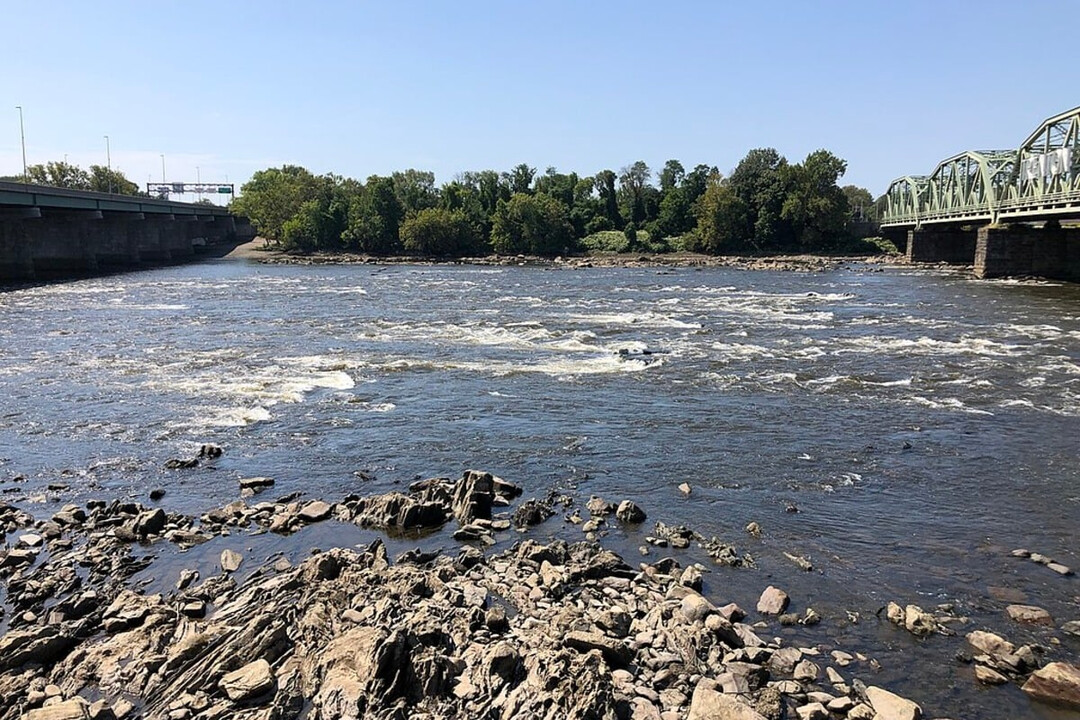
PHILADELPHIA — The Delaware River, a vital waterway for millions and a complex ecosystem where freshwater meets saltwater, faces a growing threat from a shifting climate. This delicate balance, crucial for the survival of numerous species, is increasingly jeopardized by rising sea levels, altered precipitation patterns, and increasing temperatures.
The point where freshwater and saltwater converge, known as the salt front, is a dynamic boundary influenced by the river's flow and tidal movements. However, climate change is exacerbating the intrusion of saltwater further upstream. Rising sea levels, driven by thermal expansion of water and melting glaciers, push the salty ocean water inland. Simultaneously, changes in precipitation, including more intense storms and prolonged droughts, affect the river's freshwater flow, reducing its ability to repel the encroaching salinity.
This saltwater intrusion poses significant risks to the 17 million people who rely on the Delaware River for drinking water. If the salt front advances too far upstream, it could contaminate drinking water intakes, leading to corrosion of pipes, unpleasant taste and odor, and potential health issues for those sensitive to sodium. The Delaware River Basin Commission (DRBC) has acknowledged that its current plan to release water from upstream reservoirs to maintain a sufficient freshwater flow past Trenton, New Jersey, may become inadequate given the projected sea-level rise.
Beyond human water supply, the ecological consequences of a more saline Delaware River Estuary are profound. The intricate food web that thrives in this brackish environment is highly sensitive to changes in salinity. Tidal marshes, which serve as critical nurseries and feeding grounds for numerous fish species like blue crab, perch, weakfish, flounder, and rockfish, are particularly vulnerable. These marshes also provide essential habitat for migratory shorebirds, including the red knot, which relies on the Delaware Bay's beaches and tidal flats during its spring migration. As saltwater intrudes further, these vital habitats could be degraded or lost, impacting the populations of the species that depend on them.
Furthermore, rising water temperatures can disrupt the ecosystem in various ways. Eelgrass beds, a crucial food source for many fish, may decline if temperatures exceed their tolerance levels. Changes in the timing of seasons can also create mismatches in the food web, as wildflowers bloom and migratory birds arrive earlier in the spring, potentially before their necessary food sources are available. The increased risk of diseases carried by insects, such as Lyme disease transmitted by ticks active in warmer temperatures, also presents a concern.
Recognizing these threats, numerous efforts are underway to protect the Delaware River from the impacts of climate change. The DRBC established the Advisory Committee on Climate Change in 2019 to provide scientific information and recommendations for mitigation, adaptation, and resilience. The commission is also developing its first Climate Resilience Plan, which will include strategies related to planning, consultation, outreach, education, and rulemaking concerning climate change.
Various organizations are actively involved in safeguarding the Delaware River Basin. The Delaware Riverkeeper Network advocates for the river and its communities through scientific research, community action, and legal expertise, pushing for stronger regulations and protections. The Partnership for the Delaware Estuary focuses on scientific research and collaborative efforts to protect and restore the estuary.
Federal and state governments are also taking action. The U.S. Environmental Protection Agency (EPA) recently announced plans to finalize new water quality standards to protect fish in the Delaware River, including the endangered Atlantic sturgeon. Bipartisan efforts in Congress have led to the reintroduction of the Delaware River Basin Conservation Reauthorization Act, which aims to extend funding for conservation programs through 2030, supporting crucial ecosystem protection and water quality improvements.
These collective efforts, involving government agencies, environmental organizations, and local communities, are crucial to address the challenges posed by climate change to the Delaware River. Protecting this vital resource requires a multifaceted approach that includes reducing greenhouse gas emissions, adapting to the unavoidable changes, and implementing sustainable management practices to preserve its ecological integrity and ensure a reliable water supply for future generations.
[Copyright (c) Global Economic Times. All Rights Reserved.]




























